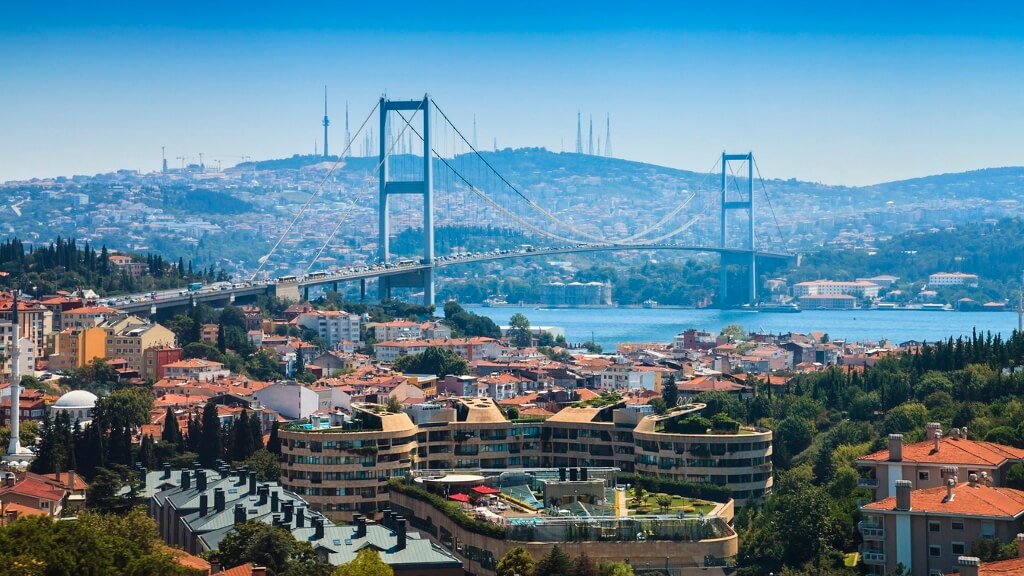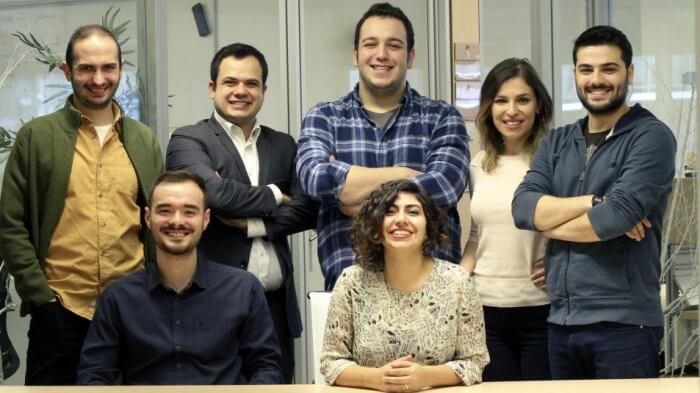Turkey Beyond The Headlines
Four lessons the UK can learn from Turkey’s bustling business scene

Not long ago, Turkey was synonymous with baklava, apricots and convenient weekend trips for the sun-deprived British public. More recently, it has become the focus of many a sharp-worded geopolitical article. The world seems to know all about Turkey’s current issues - from immigration, to terrorism, to human rights. Bad news sells. We seemingly can’t get enough of it.
But what is often overlooked is how successful the country is as a business centre. With a GDP of around US$850 billion, Turkey is currently the 17th-largest economy in the world, according to the World Bank. The country’s vision is to be one of the top 10 world economies by 2023, and it is well on track to achieving this.
So with Brexit looming, can the UK learn any lessons from Turkey’s vibrant business scene – going from strength to strength despite the undercurrents of uncertainty, and outside of the EU club? Absolutely.
Lesson 1: Get the diversification and specialisation right
Turkey’s done well to leverage the advantages of its geographic location and timezones, as well as its strong business ties with Europe and Asia, and its increasingly multi-lingual young and educated population.
It has made itself into a world-renown centre of excellence for technology, engineering and creative industries. Turkey is also known worldwide for its booming construction industry, forming a key part of the country’s wider role in the international business community.
According to the Engineering News Record, Turkey represented the second highest country of origin for contractors in 2015 with 43 companies, second only to China. During 2015, Turkish contractors undertook 7,735 projects across 104 countries, valued at a total of $304.5 billion.
Other business sectors have also been gaining strength, somewhat under the radar and unaware to much of the world. It is not a well-known fact, but currently several thousand Turkish businesses export services globally every year – this is according to the Turkish Exporters' Assembly (tim.org.tr).
“From 2000 to 2014, per capita income in Turkey nearly tripled and now exceeds US$10,000” says Mehmet Büyükekşi, Chairman of the Turkish Exporters Assembly (TiM). “Turkey’s performance since 2000 has been impressive.
Investment in education, services, as well as our entrepreneurial self-starter culture has fuelled this growth. One of our most recent initiatives, the TİM-TEB Startup Business Houses, has really fuelled the nation’s business start-ups, technology, and exports.”
While the travel and hospitality sectors were feeling the pressure, other industries were there to support the economy, with the start-up scene just one example of creating a further diversification buffer.
Lesson 2: Explore areas of mutual collaboration.
As far as the Turkey-UK collaboration is concerned, it’s not just about the food, garments and travel industries either, although these sectors do make up a large part of Turkey’s export portfolio: 70% of all UK dried apricots come from Turkey, for example, and the country supplies anything from 100% of the UK’s cotton yarn, to close to half of its textiles and cotton garments. All proof that Turkey’s economy is well-diversified.
More counter-intuitively for the British public, Turkey also supplies 93% of the UK’s washing machines with capacity of less than 6 kg (excluding fully-automatic); 90% of the UK’s motor vehicles for 10+ persons, (incl. driver, not with compression-ignition); 82% of the UK wholesale market for insulin-containing medicaments and 53% of medicaments containing penicillin; 68% of household refrigerators (absorption type) – the list goes on, and these are a few examples of Turkish products and services consumed in the UK of which the average man on the street is unaware.
When it comes to more creative industries, Turkish designers are rapidly becoming the ones to watch! Having made a mark on this year’s London Fashion Week, they credit their connection to the vibrant Turkish culture, design and textiles scene for their inspiration.
Merve Bayindir, a UK-based female-led Turkish brand for the timeless stylish and self-confident woman, is a perfect example of why Turkish fashion designers are becoming so popular. Merve Bayindir herself shares the secret behind their inspirational timeless designs, and how Turkey as a country inspires her work:
"Turkey is a country that is a mosaic of cultures. Each region has its unique identity that is formed through a long history. The most pure form of culture gives a designer an amazing platter of colours and patterns.
"In order to grow as designer, one must learn and take advantage of his/her background and blend that with today’s concepts. The Turkish design industry is one of the most upcoming and growing industries in the world - the missing elements assumed by others are never the problem, instead they are the road to creative and improved solutions, both for the designers and clients.
"As a London based millinery designer who originated from Turkey, I have learned how to blend the colors through the timeless cultural fabrics of Turkey, as well as how to manipulate them. You can see touches of my background in every design I make.
"Also in the details I like to use like handmade lace flowers, which has the essence of Turkey - making everything a bit more special and unique. ”
Lesson 3: Use innovation to give that extra boost to the economy.
Beyond the vast array of products and services Turkey supplies lies a booming and rapidly growing technology industry.
In fact, Wired UK recently announced that 10 of Europe’s 100 hottest start-ups in 2017 come from and are based in Turkey, largely funded by investments from Middle East-based VCs and big-money IP-focused seed funds.
One of the 10, Kolay IK, which created Turkey’s first cloud-based employee management software, is a product of the TİM-TEB Start-up Business Houses initiative.
This takes the form of a business house model, looking at nurturing high-growth start-ups across ten of Turkey’s provinces and contributing towards the country’s overall efforts to increase effectiveness in the areas of innovative start-ups, technology, and exports.
“Investors are trying to encourage the young generation in Turkey to create new technologies and launch their own start-ups because the Turkish market has big potential for start-ups,” said Efecan Erdur, co-founder of Kolay IK.
“Some corporations and foundations have started special programs to support young entrepreneurs, and with the hype, successful Turkish start-ups are becoming more visible in the international arena too.”
Similar to many Turkish start-ups that have opened an office in another country, Kolay IK plans to start global operations towards the end of 2017.
“We launched this product in 2014 because we realised that 95 percent of the SMBs in Turkey were using old technologies for employee management, and we wanted to change the Turkish market first and help them digitalise. Building on the experience gathered in Turkey, we will now take our business overseas.”
Lesson 4: See uncertainly as an opportunity
Much like the signature butterflies of the Merve Bayindir hat collection - to improve is to change. The ability to fully embrace change and make the most of the opportunities that come with that change, is often the real key to success in the constantly evolving business environment.
Given all the challenges, Turkey not only positioned itself solidly as an upper-middle-income country, but has also been able to boast that the poverty incidence halved between 2002 and 2012, and cases of extreme poverty fell even faster.
During this time, Turkey successfully opened up to foreign trade and finance, and harmonized many laws and regulations with European Union (EU) standards – all while not being part of the EU ‘club’.
An essential part of this success has been using the increasing revenues from the country’s anchor industries (such as agriculture and manufacturing) to support investment in education, innovation and development.
For example, the Turkish construction sector is estimated to account for (both directly and indirectly) 30% of the Turkish economy, and 10% of national employment.
With a prime geographic location bordering some of the world’s largest markets, an increasingly educated and innovative workforce, and rapidly expanding business links with countries around the globe, Turkey is uniquely positioned to act as a global business centre.
The country has already gone some way to achieving this, and is pushing on towards its goal of becoming a top 10 economy by 2023 – time to discover the potential.
Thanks for signing up to Minutehack alerts.
Brilliant editorials heading your way soon.
Okay, Thanks!



